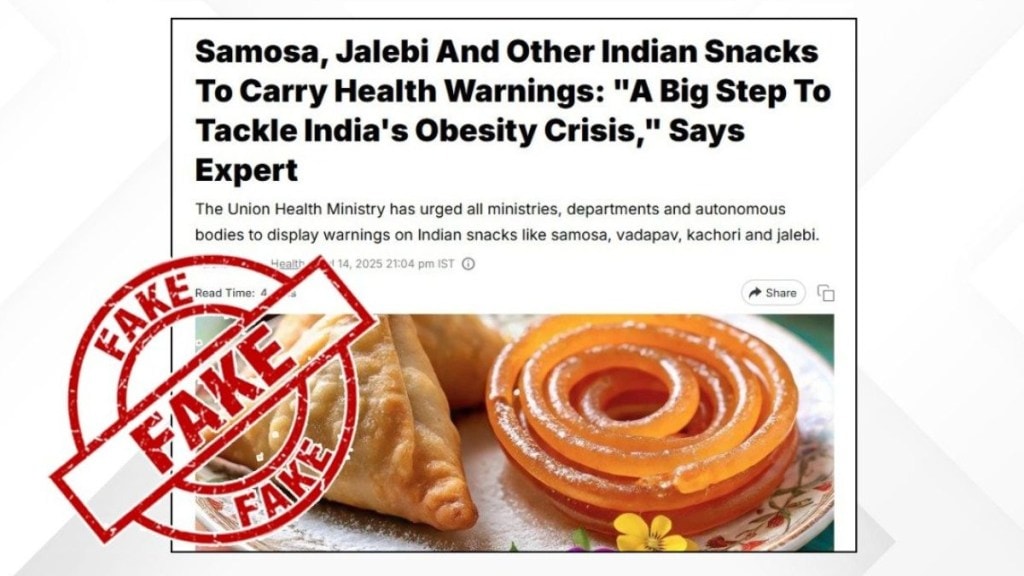The Press Information Bureau (PIB) on Tuesday dismissed media reports that claimed the Union Health Ministry had issued health warnings against popular Indian snacks like samosas, jalebis, and laddoos. PIB clarified that the Health Ministry’s advisory does not mention warning labels for local street food, nor does it target Indian snacks specifically.
The PIB advisory reads, “There have been some media reports claiming that the Union Health Ministry has directed to issue Warning Labels on food products such as samosa, jalebi and laddoo. These media reports are misleading, incorrect, and baseless. The Union Health Ministry had separately issued an advisory which is an initiative towards making healthier choices at work places. It advises about the display of Boards in various workplaces such as lobbies, canteens, cafeterias, meeting rooms etc., to raise awareness on harmful consumption of hidden fats and excess sugar in various food items. These Boards are meant to serve as daily reminders on fighting obesity, the burden of which is sharply rising in the country,” the advisory reads.
📢Advisory issued by Union Health Ministry to display Oil and Sugar Boards in workplaces is an initiative to promote healthier dietary habits
— PIB India (@PIB_India) July 15, 2025
These Boards serve as behavioural nudges regarding hidden fats and excess sugar in various food products
The Advisory does not direct…
“The Health Ministry Advisory does not direct Warning Labels on food products sold by vendors, and has not been selective towards Indian snacks. It does not target India’s rich street food culture. The general advisory is a behavioural nudge to make people aware about hidden fats and excess sugar in all food products and not specifically to any particular food product. The Advisory mentions other health messages such as promoting healthy meals such as fruits, vegetables and low-fat options along with making suggestions for opting for physical activity such as encouraging use of stairs, organising short exercise breaks and facilitating walking routes.
Some media reports claim that the @MoHFW_INDIA has issued a health warning on food products such as samosas, jalebi, and laddoo.#PIBFactCheck
— PIB Fact Check (@PIBFactCheck) July 15, 2025
✅This claim is #fake
✅The advisory of the Union Health Ministry does not carry any warning labels on food products sold by vendors,… pic.twitter.com/brZBGeAgzs
This initiative is part of the Ministry’s flagship initiatives under the National Programme for Prevention and Control of Non Communicable Diseases (NP-NCD). Excessive consumption of oil and sugar are key contributors to rising rate of obesity, diabetes, hypertension and other lifestyle related diseases,” it further read.
As per official reports, by 2050, more than 44.9 crore Indians are expected to be overweight or obese, making India the second most affected country after the US. Right now, about 1 in 5 urban adults in India is overweight. Doctors are also seeing a rise in childhood obesity, caused by poor diet and low physical activity.
“This is not about banning food,” said Dr. Sunil Gupta, a senior diabetologist. “But if people knew that one gulab jamun may contain five teaspoons of sugar, they might think twice before eating another.”
The awareness campaign supports the government’s Fit India Movement, which encourages people to live healthier lives and reduce oil use by 10 per cent. Doctors say the idea is not to stop people from enjoying traditional foods but to give them the information they need to eat mindfully.








